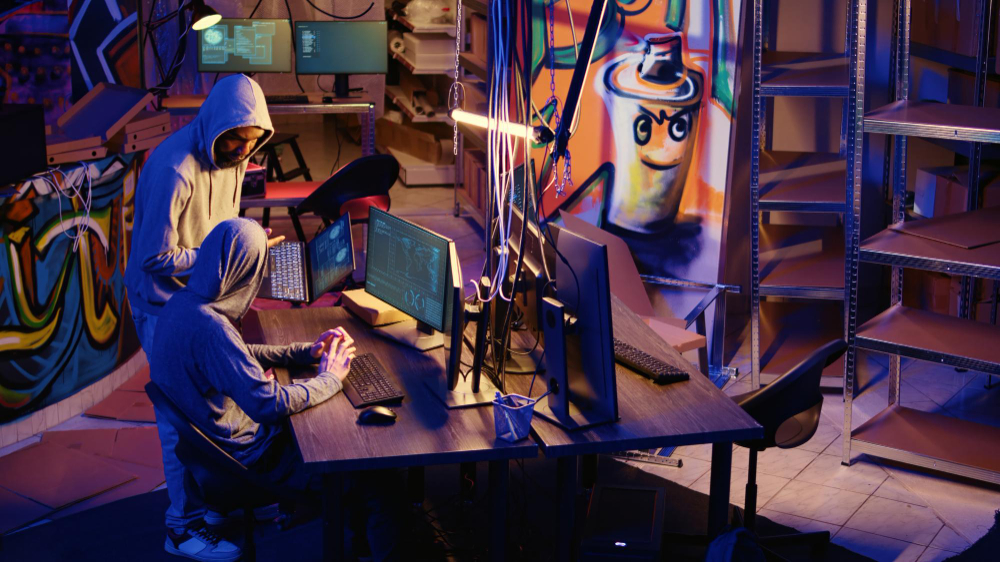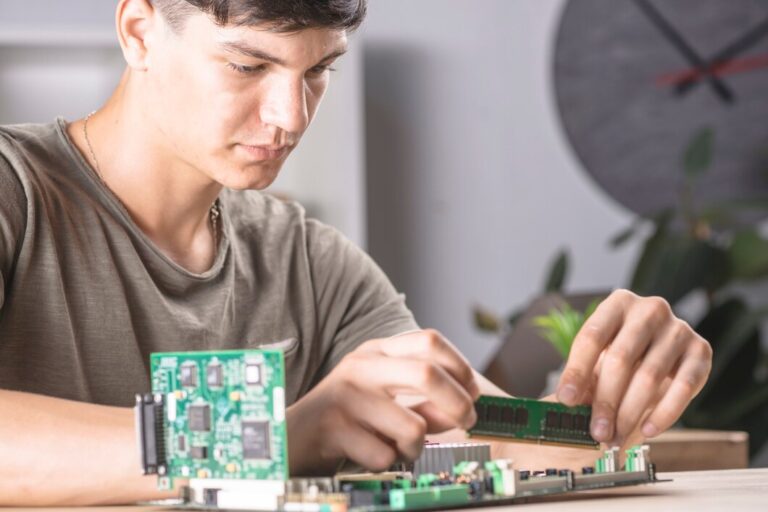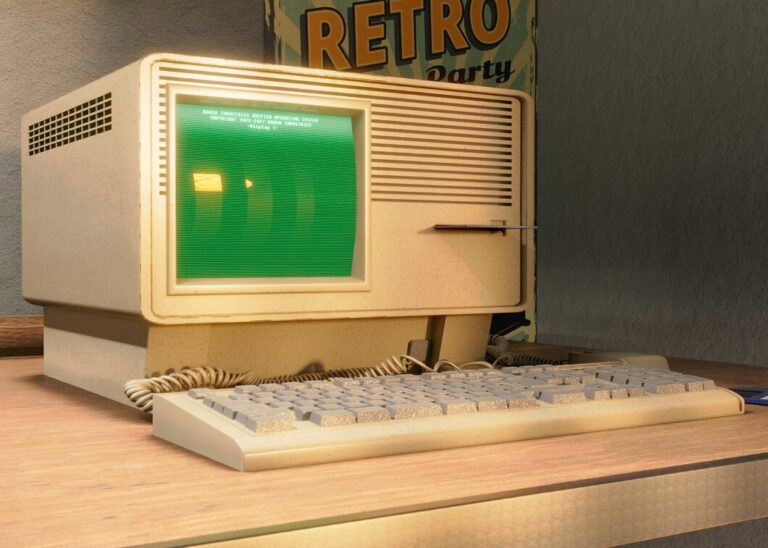
The world of technology has transformed beyond recognition in the past few decades, but few shifts are as striking as the evolution from 90s hacker culture to today’s AI-driven development landscape. The debate 90s Hacker Culture vs. Today’s AI Devs—isn’t just about tools and programming languages. It’s about mindset, philosophy, values, and how the very essence of coding has changed.
While 90s hackers were rebellious tinkerers, self-taught geniuses who saw the internet as a wild frontier, modern AI developers operate in a world of cloud computing, large-scale data, and powerful automation tools. This post dives deep into the difference between 90s hackers and modern AI developers, how AI tools are replacing hands-on coding, and how the hacker mindset shaped the digital world we live in today.
The Rise of the Hacker: What Made 90s Hacker Culture Unique?
The 1990s were the golden age of hacking. Computers were becoming mainstream, the internet was in its infancy, and software was far from secure. This chaotic environment became fertile ground for the rise of a passionate, DIY subculture of digital explorers—the 90s hacker.

Traits of the 90s Hacker
- Self-taught and resourceful: These hackers learned to code by reverse-engineering software, reading manuals, or lurking in online bulletin boards.
- Curious and rebellious: They weren’t just coders; they were explorers. The thrill came from pushing boundaries, often ignoring legal lines to gain knowledge.
- Hands-on and hardware-focused: Most hackers physically built or modified their own computers, ran their own servers, and knew their machines inside out.
- Ethics over rules: Groups like the Cult of the Dead Cow or 2600 valued knowledge-sharing, open systems, and “white hat” ethics even if they skirted laws.
The mindset of a 90s hacker vs today’s AI engineer couldn’t be more different. Hackers from the 90s saw the digital world as something to conquer and understand, while many modern devs view it as a platform to optimize and productize.
Today’s AI Dev: Automation, Abstraction, and Innovation
Fast forward to the 2020s, and we have a very different scene. Software engineers now operate in a mature, enterprise-driven ecosystem. And with the rise of artificial intelligence, we’ve entered a new era of automation and abstraction.
Characteristics of the Modern AI Developer
- Tool-heavy and high-level: Today’s AI developers rarely write code from scratch. Instead, they use libraries like TensorFlow, PyTorch, or Hugging Face APIs to build models quickly.
- Data-driven decision-making: AI devs rely on data pipelines, model training, and fine-tuning rather than digging into the guts of hardware.
- Collaborative and cloud-native: Modern teams work across platforms like GitHub, Slack, and cloud environments like AWS, GCP, or Azure.
- Compliance-aware: With strict legal frameworks (GDPR, CCPA, AI governance), today’s devs must operate with ethical oversight and accountability.
This evolution shows how AI tools are replacing hands-on coding—and with it, a major shift in how software is created and understood.
90s Hacker Culture vs. Today’s AI Devs: A Side-by-Side Comparison
| Aspect | 90s Hacker Culture | Today’s AI Devs |
| Learning Style | Self-taught, trial-and-error, IRC, forums | University-trained, MOOCs, YouTube, documentation |
| Tool Usage | Built everything from scratch | Heavy reliance on frameworks and APIs |
| Mindset | Exploration, rebellion, curiosity | Optimization, productivity, ethical constraints |
| Access to Tech | Limited, expensive, DIY | Cloud-based, affordable, scalable |
| Primary Motivation | Knowledge, challenge, freedom | Career growth, innovation, efficiency |
| Coding Style | Low-level, system hacking, C/Assembly/Bash | High-level Python, ML libraries, prompt engineering |
| Security Approach | Break it to understand it | Secure-by-design, security compliance focus |
This table illustrates how the difference between 90s hackers and modern AI developers goes far beyond just tools—it’s about a shift in philosophy and purpose.
How AI Tools Are Replacing Hands-On Coding
A defining feature of today’s AI developer is their dependence on tools. From data preprocessing to model training and deployment, almost every step can be automated. Even software development itself is now being augmented by AI with tools like:
- GitHub Copilot: Writes code based on comments or prompts
- ChatGPT: Assists in debugging, documentation, and code generation
- AutoML, or Automated Machine Learning, provides platforms that enable users to create and train complex models without any programming knowledge.
- No-code/low-code platforms: Allow product teams to build without engineering expertise
This has created an environment where hands-on coding is no longer a prerequisite. While this boosts productivity and accessibility, it also risks alienating developers from understanding the core mechanics of how systems work—something 90s hackers prided themselves on.
The Mindset of a 90s Hacker vs Today’s AI Engineer
At the heart of this conversation lies a major philosophical shift. The mindset of a 90s hacker vs today’s AI engineer reveals how technology and its purpose have transformed.
The Hacker Mindset
- “I’ll break it to understand it”
- “Knowledge should be free”
- “Rules are meant to be questioned”
Hackers thrived on exploration, often working in the shadows, not for fame or money but for the thrill of discovery. Their mindset was anti-establishment, often bordering on cyberpunk ideology.
The AI Engineer Mindset
- “Build fast, scale faster”
- “Data is power”
- “Ethics and efficiency must go hand in hand”
AI developers today are more likely to work within corporate structures, following guidelines and optimizing models for performance or business outcomes. They are trained to respect privacy, avoid bias, and navigate regulation—all things that rarely crossed a 90s hacker’s mind.
How the Hacker Culture of the 90s Influenced Today’s Tech World
Despite their differences, today’s tech world owes a massive debt to 90s hackers. Here’s how the hacker culture of the 90s influenced today’s tech world:
- Open Source Movement
Many 90s hackers contributed to or championed open-source software. Without their contributions, projects like Linux, Apache, and GNU would never have flourished. - Cybersecurity Awareness
Hackers exposed vulnerabilities before corporations even knew they had them. Their probing laid the foundation for today’s cybersecurity industry. - Internet Freedom Activism
Groups like the Electronic Frontier Foundation (EFF), inspired by hacker ideals, continue to fight for privacy, free speech, and digital rights. - The Maker and DIY Movement
The hacker’s DIY spirit lives on in today’s maker culture, from Raspberry Pi projects to 3D printing and Arduino-based robotics. - The Startup Hustle
The rebellious, entrepreneurial nature of hackers seeded the hacker-founders of the 2000s—like Mark Zuckerberg or Kevin Mitnick—who blurred the line between mischief and innovation.
How Hacking in the 90s Compares to AI Coding Today
So, how hacking in the 90s compares to AI coding today? In many ways, they exist on different ends of the spectrum.
| Factor | Hacking in the 90s | AI Coding Today |
| Intuition vs. Data | Relied on instinct and logic | Driven by massive datasets and statistical models |
| Skillset | Networking, reverse engineering, encryption | ML algorithms, data science, model evaluation |
| Output | Exploits, patches, defacements | Predictive models, chatbots, autonomous systems |
| Ethical Landscape | Gray areas, few laws, “hacktivism” | Ethical AI, regulation, bias audits |
| Impact | Exposed weaknesses, raised awareness | Solves real-world problems at scale |
The modern AI dev may be more socially responsible, but lacks the thrill-seeking, “against the grain” mentality that defined earlier tech rebels.
Bridging the Gap: Can Today’s Devs Learn from Yesterday’s Hackers?
Absolutely. While modern development emphasizes productivity and ethical compliance, there’s still much to learn from 90s hacker culture:
- Curiosity: Hackers didn’t wait for permission to learn. They explored, experimented, and failed forward.
- Self-Sufficiency: They possessed a profound and detailed understanding of their entire system, from the physical hardware to the operating system and its code. This depth of understanding is valuable even today.
- Anti-fragility: Hackers were resilient. Today’s devs can benefit from that mindset when things break or go off-script.
- Creativity under constraints: With limited tools and bandwidth, hackers built amazing things. It’s a reminder that innovation doesn’t need endless resources—just vision.
Conclusion: Rewriting the Code of Innovation
The conversation of 90s Hacker Culture vs. Today’s AI Devs is not a battle of who’s better—it’s a story of evolution. One side carved paths through uncharted digital jungles, and the other is building highways powered by machine intelligence. Both eras have their heroes, their breakthroughs, and their flaws.
We live in a time when AI tools are replacing hands-on coding, and while this makes technology more accessible, it also makes us ask deeper questions: Are we losing touch with the code? Are we becoming tool-dependent? Which principles from previous eras are essential to preserve for future generations?
In answering these questions, we not only honor the legacy of the 90s hackers but also ensure that the developers of tomorrow don’t just build better systems—but understand them, question them, and keep pushing the boundaries like the rebels who came before.






